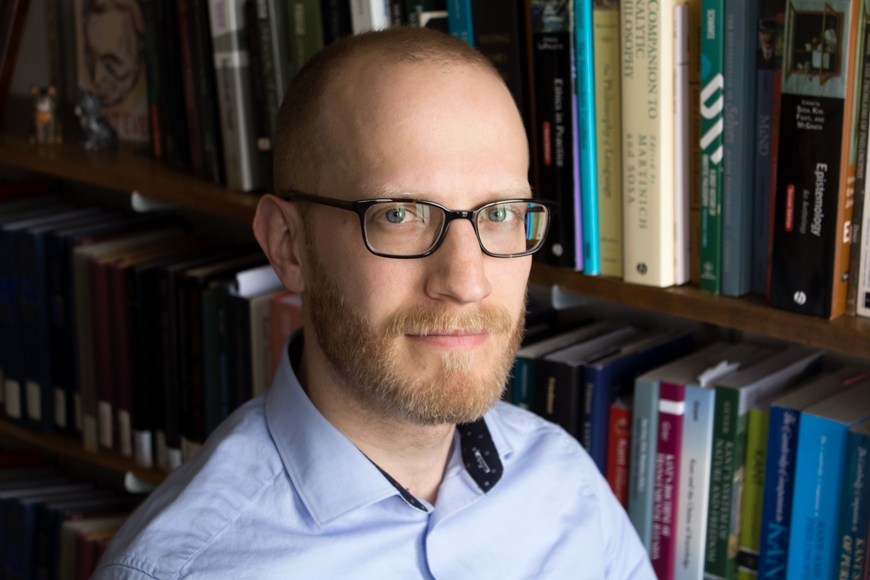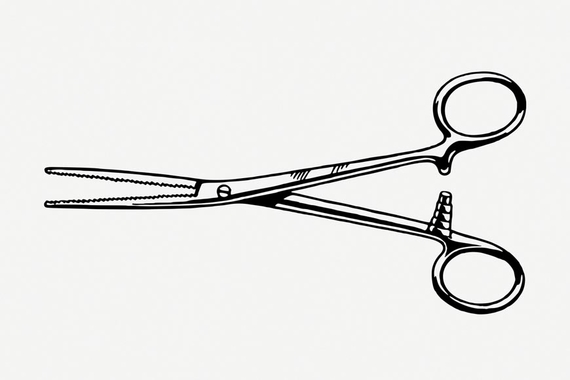Philosophy and Career Readiness
What does a prospective employee with a liberal arts degree have to offer a future employer? How can writing a paper on Kant or giving a presentation on the philosophy of sports prepare you for your future career? These are the kinds of questions that philosophy professor Bennett McNulty is challenging his students to ask. And by reflecting on their own learning and the skills they’ve developed, McNulty is confident that students will find that the answer to these questions is: a lot.
McNulty is a faculty fellow for the Career Readiness Initiative. The initiative, started in 2017, brings together 24 faculty members from 16 departments in CLA who seek to integrate career readiness into their courses and curricula by incorporating Ten Core Career Competencies—from critical thinking to community engagement. “Each of the Core Career Competencies nicely describes an important aspect of a liberal arts education,” explains McNulty. “But they also involve skills that are useful for and applicable to just about any career one might have after college.”
RATE: Reflect, Articulate, Translate, Evaluate
As a faculty fellow, McNulty incorporated the RATE portal into his curriculum. RATE, which stands for Reflect-Articulate-Translate-Evaluate, is an online resource intended to provide students the opportunity to assess their own learning. Conducting a RATE takes about ten to twenty minutes, during which students fill out an online form reflecting on their own learning, articulating how their experiences in the classroom have helped develop their competencies, translating the academic value of these competencies into their professional utility, and evaluating their own readiness to exercise these competencies both in their courses and in their careers after college.
“The real benefit of RATE is thinking metacognitively,” McNulty explains, “which means thinking about how you learned, how you would use what you learned, and how you would explain the utility of what you learned to an employer.”
CLA’s faculty fellows are helping students hone career-focused core competencies
But RATE is not only a metacognitive tool for students. It’s also a useful resource for instructors to see how their students are developing. “Instructors have the option of getting the RATEs back themselves,” explains McNulty. “And this allows us to see student perspectives on what they’re getting out of the class from a different angle than that offered by student evaluations.”
In McNulty’s spring 2018 course on the Philosophy of Sports, he had each student offer a ten- to fifteen-minute presentation on a philosophical issue relating to sports. “Within a week after his or her presentation, I had the student perform a RATE on the experience, asking them to reflect on how the presentation went, how it could have gone differently, and how the experience developed their core competencies.”
McNulty explains that this kind of self-assessment is useful preparation for professional life after college: “It really puts the student in a position where they will be able to go into an interview and tell an employer about the presentation, showing how it developed the competencies relevant to the job. And in the context of the Career Readiness Initiative, this is exactly what we’re trying to do: give students the opportunity to talk about their program and its utility to employers.”
Exploring Different Ways of Writing
RATE is just one aspect of the faculty fellows’ efforts to further integrate career readiness into the CLA curricula. McNulty also plans to foster career readiness through his essay assignments in the early modern philosophy class he will be teaching next spring. Instead of a traditional, argumentative philosophical essay, McNulty plans to assign a genre essay, in which each student will choose and imitate the particular style of an early modern thinker—whether it be that of Berkeley’s dialogues, Spinoza’s proofs, or Cavendish’s speculative fiction.
“The students are going to have to engage with their chosen genre, find out what makes it distinct and what makes it work, and then write something in that style,” McNulty says. He thinks this assignment will prepare students for their future careers better than the traditional philosophical essay: “Most of my students aren’t going to have to write argumentative philosophical essays in their future careers, but they will have to write memos, briefs, or journalistic pieces, and exploring different ways of writing as an undergraduate is going to prepare them for engaging with these different styles.”
McNulty’s efforts to integrate career readiness into his courses provides students with the opportunity to assess the relevance of their studies to their future careers. “How is one’s research in Kant’s practical philosophy relevant to potential employers?” McNulty asks. “That might seem like a hard question, and we need to give students the opportunity to figure out those connections for themselves and how to express them to employers.”
This story was written by an undergraduate student account executive in CLAgency. Meet the team.



